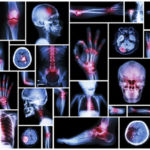EDSed is our new series of full-length interviews with international EDS experts.
These educational interview series with journalistic (news) quality is complementary to our webinar recordings and another free resource we provide for our community. All films are produced by journalist, and We Are Visible filmmaker Karina Sturm and sponsored by Chronic Pain Partners.
You can find all our films here:
https://vimeo.com/ehlersdanlosawareness
EDSed Showcase here:
https://vimeo.com/showcase/9920907
In our first episode, we interviewed Dr. Gensemer and Dr. Norris, the driving forces behind the Norris Lab. Dr. Norris is a professor in the department of Regenerative Medicine and Cell Biology at MUSC. Dr. Gensemer achieved her PhD in the Norris Lab in 2022. Her current research is focused on the genetic and molecular mechanisms of hypermobile Ehlers-Danlos Syndrome (hEDS). In this interview, they talk about what the Norris Lab currently does and plans to do in the future, how they became this EDS powerhouse, why accessibility matters and what challenges female scientists with EDS face.
EDSed Episode 1: Dr. Norris and Dr. Gensemer on the genetics of EDS and their research at MUSC:
[Accessibility information: All our videos are available with closed captions; some have descriptive audio, for example, the feature film We Are Visible in its original English version. The Norris Lab interview is only available with English captions. Video description: Two people are sitting in beige office chairs in front of a white wall. Dr. Gensemer is a woman with long, wavy blonde hair. She wears a blue shirt and white pants and has flower tattoos on her arm. Next to her sits Dr. Norris, a man with short brown hair, grey glasses, a blue shirt and a dark blue jacket on top. They answer the following questions: Can you tell us a little bit about your EDS journey? Did you always want to become a scientist? How did the Norris Lab come together? How did you recruit patients for the hEDS project? How did you handle the huge interest in your work? How did you end up becoming this EDS powerhouse? Tell me a bit about your advocacy supporting disabled scientists. What’s the biggest challenge as a scientist with EDS? What’s next? Any new projects in planning? How hard is it to keep the hEDS gene you found a secret?]


